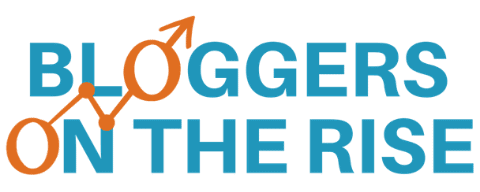Choosing What Posts to Write
I want to start by letting you know that I evaluate each post as an individual entity. I look at my blog like a mall. Each blog post is a different store that a visitor might walk into to browse. My goal, as the mall owner, is to make sure all of the stores are enticing so that a person who visits is more likely to look around vs come in for the one thing they wanted and bounce.
Using that same analogy, it is my job ad the blog owner to properly vet each topic before I even write it. Think about it, if you owned a mall would you just let any business set-up shop?
Consider Your Audience
The topic of the post needs to be interesting and it needs to have enough people seeking it out to make it worthwhile to write. I mean, sure, a post about the best computer setup for bloggers who have three kids and two dogs might be interesting, but it’s too specific and the audience is too narrow.
What are the chances that I’ll even find somebody who is specifically looking for that?
Instead, I might write a post about Best Laptop for Bloggers on the Go. That way, my post isn’t limited to women, or moms, or dog owners.
Evaluate the Competition
The audience isn’t enough though. Competition plays an important role as well. Well, at least for organic traffic. Think about what the person on the other end of the internet is searching for and do your own search.
What kind of sites are in the top 10 spots? Can you beat them?
I have heard that if you aren’t on the first page of Google search results, you may as well not exist. Before I even think about sitting down to write a post I want to look at each of the search results on page 1 of Google for my key term.
The truth of the matter is, you and I have little chance of beating the big guys in our niches. The “big guys” are different for every niche.
The trick here is to look at the competition and see if you can beat it. How many “real” bloggers like you are ranking on page 1? What about page 2 or 3?
If they aren’t getting close, you probably won’t be able to either.
So what if page 1 is full of high competition websites. Should you give up on that post? Not necessarily. There are a few other things you need to look at before deciding to can a particular topic.
Decide Pinterest or Google
Pinterest and Google are the two big search engines. Google is great for returning text-based search results and Pinterest excels at image-based results.
Each has its own merits and drawbacks. Some niches are going to do better with Google as a search engine. Especially those with topics that aren’t commonly searched by women.
Other topics may do well on both platforms. Then there is the third category that will probably get most of its traffic from Pinterest and have very little chance of ranking on Google.
Recipes, for example, tend to have the best shot on Pinterest. With the right pin images, you can entice almost anybody with your picture. Getting Google to pay attention, on the other hand, is a little harder.
If you are in a niche where Pinterest is part of your content marketing plan, be sure to evaluate both Pinterest and Google. I find it helpful to know which one I think will be the main target for my term.
You’ll want the following analysis steps for both still, but I weigh the results in Google differently if I know that the topic is most likely to have better success on Pinterest.
Of course, if you don’t use Pinterest to promote your blog, or you are in a niche where you know Pinterest doesn’t do as well, then just apply the following analysis steps to your Google research.
Can You Be Better?
We know that Google is really trying to serve its users with the best content. Something that is going to satisfy their needs.
Just because a big name site wrote a post about a particular search query doesn’t mean their post was actually helpful.
In one of my niches, pets, for example, the Spruce Pets is a very high authority site but some of their content is just lacking. It seems they have no problem having their writers make a 400 – 600-word post for a topic that should have a much longer explanation.
Get two or three of those results on a single search results page and you may have found yourself an opening.
My particular method is to look at each result in the top ten for my keyword and evaluate whether or not I could add value, and could I at least double the number of words the competition wrote without being too wordy.
Competition Analysis for Pinterest
For Pinterest, your keywords help but you have to be able to get your image and pins on point. Look at the other images when you search Pinterest for the term. What can you do to make yours stand out?
Can you do a better background? Better presentation? Better fonts? Better design?
The more elements you have at your disposal, the more likely you are to be able to earn clicks from your pins.
Be Helpful
Ideally, you know enough about your niche to know what the person behind the search engine is looking for AND what they need.
Go above and beyond to provide them with as much information as possible for that specific term, while being careful not to add fluff just for the sake of hitting a word count goal.
Some ideas for helpful blog content include:
- Make a custom illustration. It doesn’t have to be great.
- Make a free downloadable printable.
- Include a snapshot of your tracking log or charts.
- Find and embed a helpful video from YouTube.
- Provide links to other posts on your site that could be helpful.
- If you need to, provide links to other sites that may be more helpful.
Learn from Your Mistakes with Data Tracking
Learning how to decide what to write takes practice. You are going to have some wins and you will have some failures. The best way to decide what is working for your blog is to keep notes on each search term initially.
You won’t know in 30 days what worked. In fact, 90 days isn’t even enough to determine if a blog post is a success or failure in most niches. This is especially true with Google but also the case for Pinterest.
In five or six months you won’t remember why you decided it was OK to write a particular topic. My recommendation is that you make a note or journal about search analysis for your site for a while.
How long do you need to track data? That depends on you. How long until you can look at search results and KNOW you can hit page 1? For me, it’s something that took at least 4 months.
Some of the things I tracked are:
- The keyword I was trying to rank for.
- Search Volume
- Snip/screen capture of the top 10 Google results.
- This is great vs copying URL’s because later, you can look back at what post titles and meta descriptions were for these top posts.
- Snip/screen capture of the Pinterest results page for the term.
- Length of post for top 10 results.
- Notes on top 5-10 results
Tracking and actually stopping to do this type of stuff may seem like a pain initially. Trust me, it gets to become a habit and gets pretty much second nature.
If you’ve been on my site for any amount of time, you know I love data. This data helps me to continue to improve my ability to find keywords I can rank for. Particularly in Google.
Moving Forward
Once you have gone through the steps, decided you will write a particular post, go for it. Get it done, get pictures on it and publish it. Schedule your pins to Pinterest if you need to and then forget about the post.
That is right, forget about it.
Don’t worry about the post again for at least 60 days. Don’t change it, don’t add to it, don’t second guess your title.
You have done the research. Now, you have to wait. The biggest mistake you can make is changing things around before Google or Pinterest decides what to do with your post.
Of course, we won’t completely forget about it. If you use my method of post tracking you will have a rough idea of your traffic for the post at the end of each month. So don’t go getting all skeptical.
More Details
In June of 2019, I joined the first blogging course that actually made a difference for me, Project 24. If you look at the income reports for my Niche Site Project 1, you can see how income started to skyrocket. I won’t lie, it took a ton of work but this was the first course I took that actually made a difference for my blog. Check out the Income School Website for more information about Project 24.


